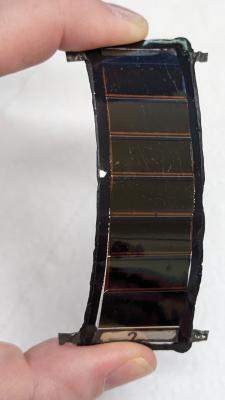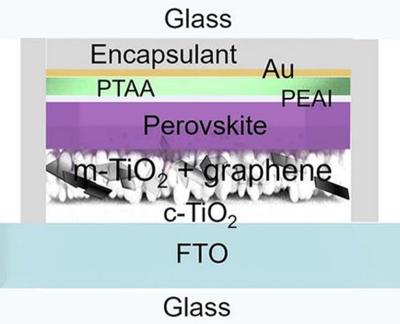Halocell to start producing indoor perovskite PVs that can replace disposable batteries and charger cables
Australian start-up Halocell will reportedly begin producing flexible 7 centimeter-long photovoltaic strips that are said to generate enough power to replace the pair of disposable batteries in a TV remote, or the charger cable for a set of headphones. This represents the first large-scale manufacturing in Australia of perovskite PV technology.
The 5-volt Halocell perovskite strip. Image credit: Halocell
The Halocell modules will each cost less than a dollar to make and the Company has ambitious plans to produce millions per year, its CEO Paul Moonie said.







